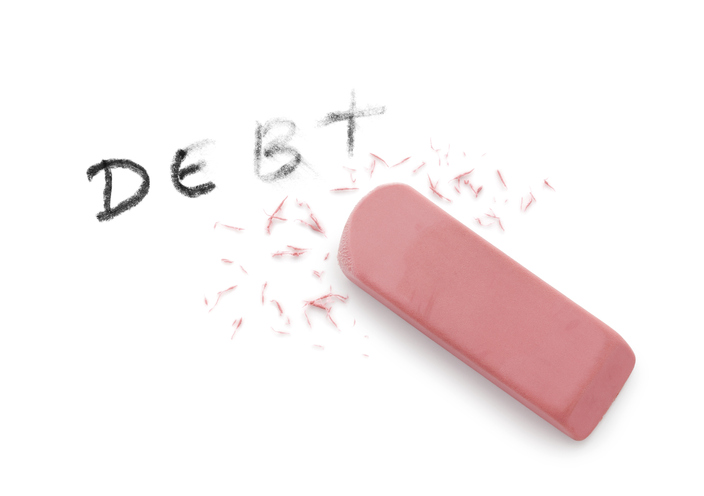Budgeting 101: How to Pay Off Old Debt
Whatever the source of your old debt — old student loans, past due credit cards or something else — it can feel like a millstone hanging around your neck, especially if debt collectors are harassing you. However, don’t let the fear or uncertainty get the best of you. According to Eric Roberge, a certified financial planner in Boston who works with young professionals across the country, “The fear typically comes from the lack of knowledge of available options. Once all the options are laid out, you can then choose the best option for your situation.”
Know Where You Stand
Before you can plan for how to pay off your old debt, you need to know who you need to pay and how much you owe. Roberge says, “The starting point to solving all debt problems starts with understanding your cash flow.” He advises creating a personal income statement that captures your monthly income and expenses so you can determine how much money you can put toward debt and what expenses you might be able to cut to find extra cash to pay off debts faster.
Categorize Debts by Tax Deduction
When it comes to deciding which debts to pay down more aggressively, first divide your debts into two categories: those that offer a tax deduction for the interest you pay and those that aren’t deductible. “Any debt without tax-deductible interest should be paid off first in most cases. This is commonly known as ‘bad debt.’ Credit card debt is the most common in this category,” explains Roberge. These debts include mortgage debt, student loans and business loans.
Pick Debts to Pay Down
When selecting which specific debts to pay down first, you can pick between paying off the debts with the highest interest rates or paying off the smallest debts. Paying down the debts with the highest interest rates saves more money on your bottom line, but if you’re feeling stuck, Roberge notes that paying down the smallest debts first might help you feel like you are “getting the ball rolling” once those debts are eliminated. This is a completely personal decision based off your preferences.
Whichever way you choose to prioritize your debts, Roberge recommends using the “snowball method.” This has you make the minimum payment on all your debts except the highest priority debt — either the one with the biggest balance or the highest interest rate — and pay as much as you can on the highest priority debt. Roberge explains it like this: “Let’s say you are paying $200 toward the highest priority debt and the minimum balance for the rest. Once this first debt is paid off, you can take that $200 and add it to the amount you are paying toward the next debt. As you pay off each debt, the amount you can pay toward the next increases like a snowball rolling down a hill.”
Consider Refinancing Options
Refinancing to a lower interest rate can save you money and help you pay off your debts faster. “The problem is that it may or may not make sense to do so,” says Roberge. “The interest rate environment at that time is the key factor.” For example, a home equity loan can be great if you are looking to pay off bad debt, because you may be able to deduct the interest on a refinanced loan. Credit card balance transfers “may also be a good option for some,” suggests Roberge, but you have to watch the transfer fees and when the introductory rate ends. “I only recommend this option for someone who is really committed and capable of paying off the debt within the introductory rate period,” says Roberge.
Stay on Track With Debt Payoff
Even the best laid debt-reduction plans won’t do you any good unless you carry them through to completion. To keep you on track, Roberge offers two suggestions. First, he suggests rewarding yourself as you hit certain benchmarks. “You could treat yourself when each debt is paid off. Going back to the snowball method example, once you pay off the balance of debt #1, you could take that extra $200 and go out to eat once or twice the following month. You can then use that $200 to pay down subsequent debts going forward.”
Second, find an accountability partner to hold you to your debt reduction goals. “If you make goals and don’t share them, it’s very easy to let yourself off the hook,” cautions Roberge. “If several people know about your debt repayment goals and they check in with you each month, it’s not so easy to tell them you aren’t doing what you said you would.”
Quicken has made the material on this blog available for informational purposes only. Use of this website constitutes agreement to our Terms of Use and Privacy Policy. Quicken does not offer advisory or brokerage services, does not recommend the purchase or sale of any particular securities or other investments, and does not offer tax advice. For any such advice, please consult a professional.



